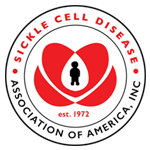
Welcome to CMO Speaks, a blog featuring the voices of SCDAA’s clinical leadership team. This article was written by Dr. Lewis Hsu, SCDAA’s chief medical officer, with gratitude for input from many sickle cell warriors.
Sickle Cell Warriors Get Hurt When Cyberattacks Hit Large Health Care Companies
A national cybersecurity incident recently caused certain pharmacy services that affect individuals with sickle cell disease (SCD) and other chronic diseases to shut down. The problems were first reported on February 21 and have so far impacted pharmacies across the country for over a week. The Sickle Cell Disease Association of America, Inc., (SCDAA) condemns these attacks and the extreme strain they place on our health care system and community.
Many individuals with SCD rely on their pharmacy to stay healthy and functional. Because of these cyberattacks, individuals with sickle cell disease report difficulty getting their pain medication prescriptions filled at certain pharmacy systems. Individuals with SCD are unable to keep a reserve supply of this medication at home due to the Centers for Disease Control and Prevention’s opioid regulations. Those stuck in this loophole are suffering with more days of sickle cell vaso occlusive pain. Individuals with chronic pain who rely on combination therapy to stay functional are suffering disruptions to parts of their Individualized Pain Plan. Patients who take hydroxyurea are experiencing gaps in their daily therapy because prescriptions cannot be filled.
Some families can switch pharmacies, but they must ask their doctor to rewrite the prescription to send to a different pharmacy. Other families who reside in rural or suburban areas may have fewer pharmacy options or no alternative to the affected pharmacy. Working parents who are already stretched thin trying to manage SCD along with work, childcare, eldercare, etc., might have much more difficulty with these issues.
Some health care systems have shut down email and other electronic communication channels as each informatics team struggles to limit the spread of the cyberattack into their electronic health records system. This may cause doctors to struggle to know what to do with referral patients.
SUGGESTED STEPS FROM SCDAA:
- SCDAA asks prescribers and pharmacists to show extra compassion for redirecting prescriptions during this national cyberattack.
- Providers who are rewriting prescriptions should consider including a comment on the prescription to explain the fragmentation of care (this could read: Redirected prescription due to national cyberattack). Please note: These prescriptions will need to be re-directed back to the ORIGINAL pharmacy at a later date.
- Speak up that the victims of these cyberattacks include individuals with SCD, causing them more pain and suffering.
- Speak up that the IT response amplifies disparities in care. Encourage people to recognize the human suffering cost of these attacks. The quality of our health care systems suffers when IT systems shut down. Emphasize that the burden of these attacks falls upon the most vulnerable patients, who have the least resources and least flexibility to cope.
- Condemn cyberattacks, especially on health care systems. Cybercriminals are not just affecting the financial status of big health care companies; they are damaging the lives of innocent people with severe chronic diseases like SCD.
 Lewis Hsu, MD, PhD, is a pediatric hematologist who serves as director of the Sickle Cell Center and professor of pediatrics for the University of Illinois at Chicago. He has conducted sickle cell research, published over 100 publications and co-authored “Hope and Destiny: The Patient and Parent’s Guide to Sickle Cell Disease and Sickle Cell Trait.” He currently serves as the SCDAA Chief Medical Officer.
Lewis Hsu, MD, PhD, is a pediatric hematologist who serves as director of the Sickle Cell Center and professor of pediatrics for the University of Illinois at Chicago. He has conducted sickle cell research, published over 100 publications and co-authored “Hope and Destiny: The Patient and Parent’s Guide to Sickle Cell Disease and Sickle Cell Trait.” He currently serves as the SCDAA Chief Medical Officer.
